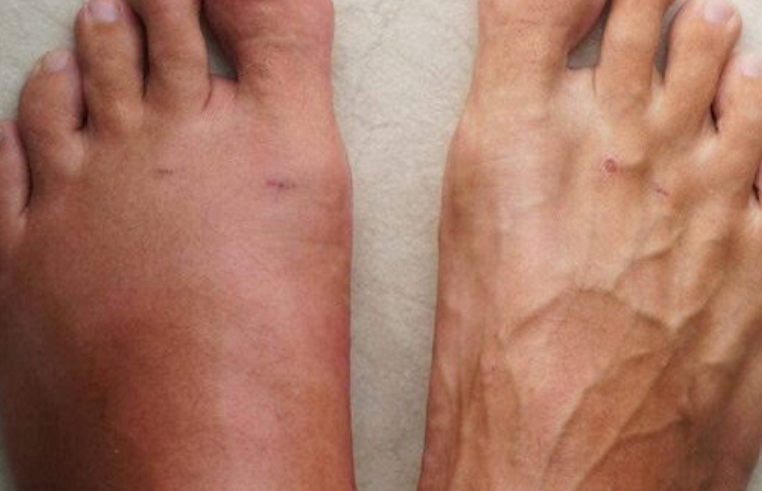Did you know that heart attacks rank as the primary cause of mortality in the United States?
The fast-paced lifestyle coupled with poor dietary habits significantly contributes to the escalation of this ailment in recent times. Identifying the indicators of heart failure a month prior can prove immensely advantageous, potentially saving lives. Alongside adopting a wholesome lifestyle and managing stress levels, this awareness can serve as a shield against heart failure.
Stay vigilant for these signs, as they might herald a heart attack within a month, serving as vital cautionary signals:
Edema (swollen feet): In cases of congestive heart failure, the lower chambers of the heart may lose efficiency in blood pumping, leading to blood accumulation in the legs, ankles, and feet, resulting in swelling.

Fatigue: Narrowed arteries can cause inadequate blood supply to the heart, compelling it to overwork, leading to profound fatigue and drowsiness.
Dyspnea (shortness of breath): Reduced blood supply to the heart also impacts lung oxygenation. Thus, breathing difficulties could signify an urgent need for medical intervention, potentially indicating an impending heart attack.
Weakness: Constricted arteries impede proper blood circulation, manifesting as weakness in the body, increasing the risk of unexpected falls. Extra caution is advised.
Dizziness and cold sweats: Diminished blood flow to the brain poses grave risks. Initial symptoms may include dizziness and clamminess. Ignoring these signs is not advisable.
Chest pressure: Discomfort or pressure in the chest could be indicative of an impending heart attack, with the sensation progressively intensifying until the actual event occurs.
Flu-like symptoms: Onset of flu-like symptoms might precede a heart attack. Many individuals mistake early cold symptoms for flu signs.
What to do: If you or someone exhibits these symptoms, prompt medical attention is imperative. Early detection plays a pivotal role in averting a heart attack.
Share this information with your loved ones; it could potentially save a life!
